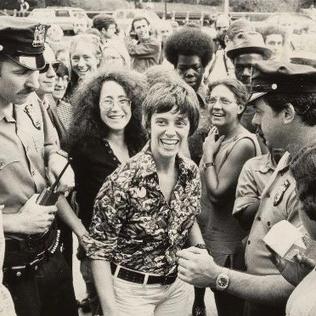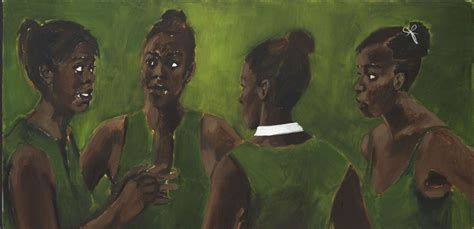A Quote by Kerry James Marshall
The condition of visibility as it relates to black people was crucial. Connected to that, I've always been interested in science fiction and horror films and was acutely aware of the political and social implications of Ralph Ellison's description of invisibility as it relates to black people, as opposed to the kind of retinal invisibility that H.G. Wells described in his novel Invisible Man.
Related Quotes
I've never seen a sincere white man, not when it comes to helping black people. Usually things like this are done by white people to benefit themselves. The white man's primary interest is not to elevate the thinking of black people, or to waken black people, or white people either. The white man is interested in the black man only to the extent that the black man is of use to him. The white man's interest is to make money, to exploit.
Science fiction is a weird category, because it's the only area of fiction I can think of where the story is not of primary importance. Science fiction tends to be more about the science, or the invention of the fantasy world, or the political allegory. When I left science fiction, I said "They're more interested in planets, and I'm interested in people."
In [Ralph] Ellison's case, it's more psychological than it is phenomenal, and it's conditioned by anger, animosity, and lack of desire to engage with the black body. There was always simultaneity that had nothing to do with visuality. You can be there and not be there at the same time and be fully visible all the time. That's what really struck me about Ellison .
A few of Ellison's short stories from the 1940s and 1950s were widely anthologized over the years. After a while, it became generally known that he was at work on another novel. Though he remained aware ever afterward of the authority 'Invisible Man' gave to him, no second novel followed his brilliant debut in 1952.
I wanted to make sure the focus [in The Land] was on human beings themselves and their decisions, but still connected to the urban environment that people associate as being black. I think I was able to make a film without commenting on "black this or black that" and you still feel the presence of it. There's no one character who's saying "we're all black and we're all in this struggle." It's that you just feel it. Some of that is because we get the sense from a lot of independent films that black people struggle all the time.
Like Richard Ellmann on James Joyce, Arnold Rampersad on Ralph Ellison is in a class of its own. His masterful and magisterial book is the most powerful and profound treatment of Ellison's undeniable artistic genius, deep personal flaws, and controversial political evolution. And he reveals an Ellison unbeknownst to all of us. From now on, all serious scholarship on Ellison must begin with Rampersad's instant and inimitable classic in literary biography.





































